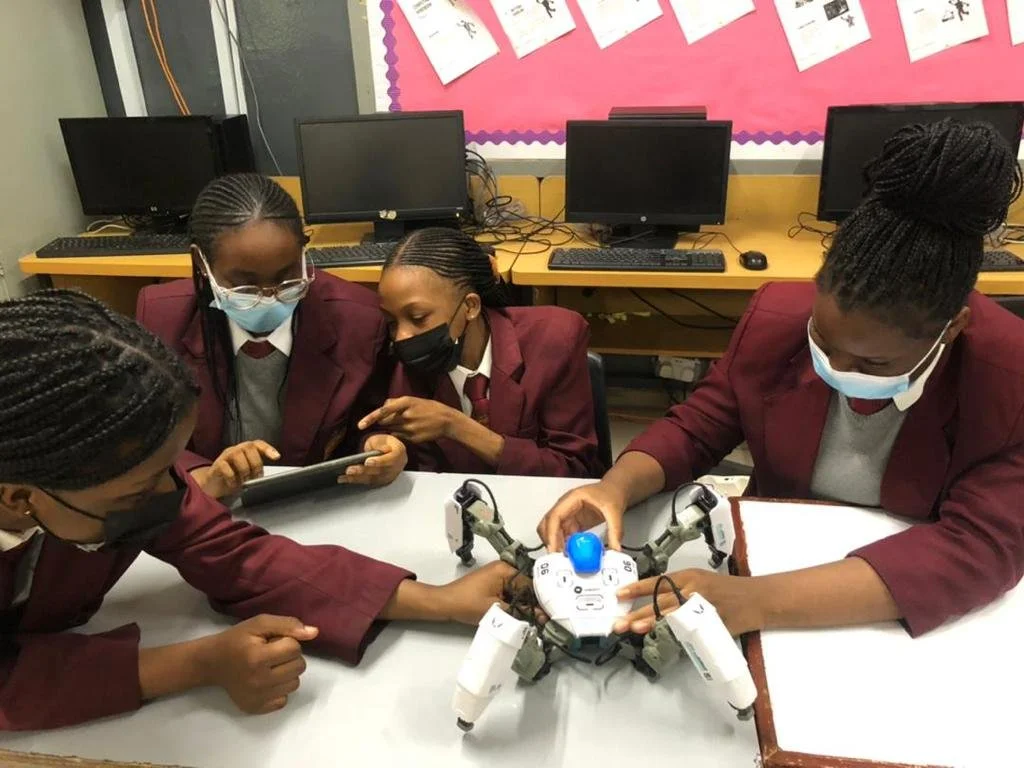AI Ethics and Bias in Nigerian Education: Ensuring Fairness in Learning Technologies
Artificial Intelligence (AI) is rapidly transforming the global educational landscape, offering a promising solution to the long-standing challenges of accessibility, personalized learning, and administrative efficiency. For Nigeria, a country where 10.5 million children remain out of school and only 61% of 6-11-year-olds attend primary school regularly (UNICEF, 2023), AI presents a powerful tool to address these issues. However, with the integration of AI into the education system comes a critical concern: the risk of algorithmic bias. AI models, if not developed carefully, can inadvertently perpetuate discriminatory practices, such as biased grading systems or tools that overlook Nigeria’s vast linguistic diversity. The question then becomes: how do we ensure that AI-driven learning technologies are fair, ethical, and inclusive? This article aims to explore the challenges and opportunities of integrating AI into Nigerian education and how we can develop AI solutions that prioritize fairness, equity, and inclusivity.
Across the world, the conversations surrounding AI ethics and bias in education are intensifying. According to both the OECD and UNESCO, addressing algorithmic bias is a key issue in the development of AI tools for education (OECD, 2023; UNESCO, 2023). AI models in education, particularly in diverse contexts like Nigeria, risk perpetuating exclusion if they are trained on limited datasets that do not reflect the cultural, regional, and socio-economic diversity of students. Without clear ethical guidelines and proper safeguards, AI could reinforce existing inequalities rather than helping to bridge them. It’s essential, therefore, that AI solutions for education be developed with a focus on fairness, transparency, and inclusivity.
In Nigeria, while there have been advancements, the adoption of ethical AI in education is still in its early stages. The N3.5 trillion education budget for 2025, though a step in the right direction, still falls short of the UNESCO recommended 15% allocation (Vanguard, 2024). The country needs a strong regulatory framework that not only supports the use of AI in education but also ensures that AI is implemented responsibly, balancing the need for data privacy with the need for accountability and fairness. The Nigerian government, along with private sector stakeholders, must create policies that encourage AI adoption while ensuring that the technologies used do not inadvertently harm vulnerable groups.
At Awarri, Education is our roots. Through 2020 and 2021, we partnered with Union Bank for our robotics education initiative which highlights our dedication to creating technology-driven solutions that prioritize fairness and accessibility. Through these efforts, we are helping to drive the conversation on how AI can be used to enhance learning in ways that are inclusive and transparent, ensuring that every student—regardless of background, region, or language—can benefit from AI’s potential. As the conversation around AI in education continues to evolve, Awarri remains dedicated to working alongside policymakers, industry leaders, and educators to establish ethical guidelines that can help ensure fairness in AI-powered educational tools.
Now more than ever, we are committed to being part of this critical conversation and to ensuring that AI is developed in a way that truly benefits Nigeria’s educational system. Through our collaboration with the Federal Ministry of Digital Economy and Communications, we support the 3 Million Technical Talent (3MTT) initiative, helping to equip young Nigerians with the skills necessary for careers in AI, data annotation, and digital technologies. Our involvement in the Skill Acquisition and Innovation Lab (SAIL) initiative further reinforces our commitment to creating a new generation of AI professionals who understand the importance of ethical development and bias mitigation. With over 4,000 individuals trained nationwide, we are not just creating jobs; we are building a workforce equipped to tackle the ethical challenges posed by AI in education.
For AI to truly revolutionize Nigerian education, it must be developed and implemented with a focus on equity and accountability. At Awarri, we’re committed to making sure AI becomes a force for good, bridging gaps in education, not widening them. We're developing an authentically Nigerian multilingual LLM, and we’re inviting educators, policymakers, and developers to sign up as Beta Testers. Your insights can help shape how this model serves the educational sector, highlight areas we may have missed, and ensure we’re building an inclusive, bias-free solution.
Be part of the change. Let’s shape the future of learning together to ensure that AI-driven learning technologies remain ethical, inclusive, and transparent, creating a future where every learner, regardless of their background, has equal access to high-quality education.




